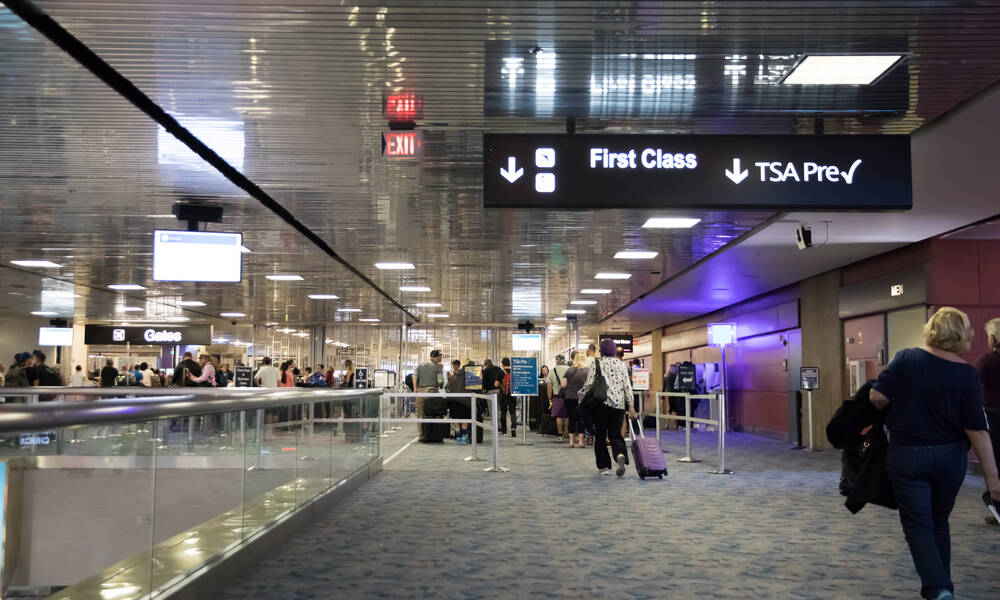
Federal Government Assesses Digital Options to Ease Real ID Rollout
Less than a year away from the official rollout of the federal Real ID standard, about two-thirds of Americans don’t have a compliant license. But federal officials are looking into digital alternatives to ensure travelers can keep flying.
A major shift in travel identification requirements—the introduction of the federally mandated Real ID—could create a lot of headaches at the airport starting next fall. And because two out of three Americans still don’t have a compliant driver’s license, the U.S. Department of Homeland Security has started working on ways to make the transition less painful.
Beginning October 1, 2020, Transportation Security Administration officials at airports will stop accepting state driver’s licenses that don’t comply with Real ID’s higher standard for security. “Where states have historically set their own rules for verifying the details on your ID, they now must all follow federal standards,” a recent Wired article explained.
Despite 15 years of lead time—the law was enacted in 2005 as part of the national security response to the 9/11 terrorist attacks—less than a third of Americans have a card that complies with the standard, in part because of issues with rollout at the state level. Those who don’t have a Real ID will have to use alternative forms of identification, such as passports, to board a domestic flight, and they won’t be able to access military bases. Obtaining a Real ID-compliant license requires an in-person trip to the Department of Motor Vehicles.
At least for now. The Washington Post reported last week that DHS is considering options that would allow people to apply for a Real ID online. “The department is interested in ideas and technologies that could allow applicants to submit their required documents electronically to the DMV in addition to, or possibly in lieu of, applying in person,” a DHS spokesman said.
The travel industry is welcoming the effort. Speaking to the Post, the U.S. Travel Association’s vice president of public affairs and policy, Tori Emerson Barnes, noted that technology has evolved significantly over the past 15 years, making online verification an option.
“It is a much different security and technology landscape now than when Congress passed the act in 2005, and as a result there are real opportunities to make the Real ID application process much more efficient, while truly enhancing security,” Emerson Barnes said.
DHS is accepting proposals for online application processing through December 9 and then will assess whether those options would require changes to the law or its regulations before being implemented, the Post reported.
(Jodi Jacobson/iStock Unreleased)






Comments